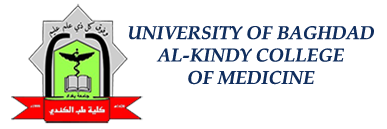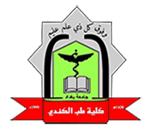“Ethics is not just a subject we learn — it’s the foundation of every decision we make as future doctors.”
That was the heart of the message during a compelling seminar hosted by Al-Kindy College of Medicine – University of Baghdad, under the joint efforts of the Employment, Qualification, and Follow-up Unit and the Psychological Counseling and Educational Guidance Unit.
Titled “Medical Ethics and Physician Agreements with Pharmaceutical Companies,” the session was led by Asst. Prof. Dr. Harith Mohammed Qanbar, who delivered an eye-opening talk to an audience of clinical-stage medical students.
The seminar tackled timely and essential themes — from the impact of pharmaceutical marketing and free samples on clinical decisions, to the fine line between professional collaboration and commercial influence. Students explored these topics through Small Group Discussions (SGDs), encouraging honest, real-world reflection on the challenges they may soon face in their medical careers.
“It’s easy to talk about ethics in theory,” said one student, “but this session helped us see how it plays out in practice — in real patient care decisions.”
A major highlight was the discussion on the physician-pharmacist relationship, reinforcing how essential it is to work hand-in-hand to ensure medications are used wisely, ethically, and effectively for the best patient outcomes.
Legal frameworks and professional standards governing these relationships were also covered, giving students tools to navigate potential conflicts of interest and uphold the values of transparency and integrity.
The seminar wrapped up with an open Q&A that sparked lively debate, fresh ideas, and a clear message: ethics isn’t just a course — it’s a commitment to doing what’s right, even when no one is watching.















